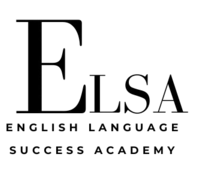This quiz is designed to help you improve your understanding of philosophy-related vocabulary. It consists of five sections with 15 questions in total. Answer each question carefully, and at the end, you’ll receive a score along with feedback and advice based on your performance.
Section 1: Choose the Missing Word (5 questions)
Complete each sentence by choosing the correct word from the three options.
Question 1:
In his philosophy, Descartes famously stated, “I think, therefore I __________.”
- A) perceive
- B) am
- C) exist
Question 2:
Plato’s concept of the __________ refers to the most perfect and unchanging reality.
- A) ideal
- B) form
- C) essence
Question 3:
Nietzsche’s idea of the “will to __________” explores the drive for power and dominance in human nature.
- A) survive
- B) truth
- C) power
Question 4:
Kant’s “categorical __________” is a central principle in his moral philosophy, instructing individuals to act according to universal laws.
- A) argument
- B) imperative
- C) reason
Question 5:
Existentialist philosophers emphasize the importance of personal __________ in determining meaning in life.
- A) freedom
- B) knowledge
- C) reality
Section 2: What’s the Opposite? (3 mini quizzes)
Identify the opposite of the given word.
Mini Quiz 1:
The opposite of empiricism is:
- A) idealism
- B) rationalism
- C) pragmatism
Mini Quiz 2:
The opposite of determinism is:
- A) fatalism
- B) libertarianism
- C) compatibilism
Mini Quiz 3:
The opposite of subjective is:
- A) objective
- B) relative
- C) intuitive
Section 3: Sound Similar (3 questions)
Complete the sentence by choosing the correct word. Be careful—some words sound alike!
Question 1:
In Aristotelian logic, the concept of the syllogism consists of a major __________ and a minor premise.
- A) proposition
- B) presupposition
- C) premise
Question 2:
Her critique was grounded in a deep understanding of the philosopher’s __________ theories.
- A) metaphysical
- B) metaphoric
- C) methodical
Question 3:
In existentialism, human beings must create meaning in an otherwise __________ universe.
- A) absurd
- B) obsurd
- C) absord
Section 4: Definitions (3 questions)
Choose the correct definition for each philosophy term.
Question 1:
What is dualism?
- A) The belief in two fundamental types of substance, typically mind and body
- B) The study of how knowledge is acquired
- C) The belief that everything is composed of a single substance
Question 2:
What does epistemology mean?
- A) The branch of philosophy concerned with the nature and limits of knowledge
- B) The study of moral values and principles
- C) The philosophical study of existence
Question 3:
What is existentialism?
- A) A philosophy that emphasizes individual freedom, choice, and personal responsibility
- B) The study of the logical structure of propositions
- C) The belief in an ordered, deterministic universe
Section 5: What’s the Spelling? (3 questions)
Identify the correctly spelled word.
Question 1:
Which word is spelled correctly?
- A) Phenomenology
- B) Fenomenology
- C) Phenomonology
Question 2:
Which word is spelled correctly?
- A) Deonotology
- B) Deontollogy
- C) Deontology
Question 3:
Which word is spelled correctly?
- A) Teleology
- B) Telealogy
- C) Teleologie
Answer Key and Explanations:
Section 1: Choose the Missing Word
- B) am – Descartes’ phrase “Cogito, ergo sum” translates to “I think, therefore I am.”
- B) form – Plato’s Forms are perfect, unchanging realities that exist in the realm of ideas.
- C) power – Nietzsche’s will to power refers to the fundamental drive for achievement, control, and self-overcoming.
- B) imperative – Kant’s categorical imperative is a moral rule that applies universally, regardless of circumstances.
- A) freedom – Existentialist philosophers like Sartre emphasize freedom as a key element in defining one’s life.
Section 2: What’s the Opposite?
- B) rationalism – Empiricism is the theory that knowledge comes primarily from sensory experience, while rationalism emphasizes reason and logic.
- B) libertarianism – Determinism holds that all events are caused by preceding factors, whereas libertarianism argues for free will.
- A) objective – Subjective refers to personal perspectives, while objective means independent of individual feelings or opinions.
Section 3: Sound Similar
- C) premise – A premise is a statement that provides the basis for an argument, whereas presupposition is an assumption made before the argument.
- A) metaphysical – Metaphysical refers to the branch of philosophy that deals with the fundamental nature of reality, while metaphoric means figurative, and methodical refers to being systematic.
- A) absurd – In existentialism, the universe is described as absurd, meaning it lacks inherent meaning.
Section 4: Definitions
- A) The belief in two fundamental types of substance, typically mind and body – Dualism is the view that mind and body are separate substances, famously proposed by Descartes.
- A) The branch of philosophy concerned with the nature and limits of knowledge – Epistemology is the study of knowledge, questioning how we know what we know.
- A) A philosophy that emphasizes individual freedom, choice, and personal responsibility – Existentialism focuses on the individual’s role in creating meaning in a seemingly meaningless world.
Section 5: What’s the Spelling?
- A) Phenomenology – Phenomenology is the study of structures of experience and consciousness.
- C) Deontology – Deontology is an ethical theory that emphasizes the importance of duty and rules.
- A) Teleology – Teleology refers to the explanation of phenomena in terms of the purpose they serve.
Scoring and Feedback:
- 12-15 correct: Excellent! Your philosophical vocabulary is highly advanced. You have a strong grasp of complex terms and concepts. Keep exploring deeper philosophical texts to challenge yourself even further.
- 8-11 correct: Good job! You have a solid understanding of core philosophical terms. To improve, focus on refining your knowledge of specific definitions and opposites.
- 4-7 correct: Fair effort. You might want to review key philosophical concepts, especially in epistemology and ethics. Reading introductory philosophy books could help solidify your understanding.
- 1-3 correct: It seems you’re having difficulty with basic philosophical terminology. Starting with the fundamentals of major philosophical schools and thinkers might help you build a stronger foundation.
Keep practicing, and soon you’ll master even more philosophical concepts and vocabulary!







